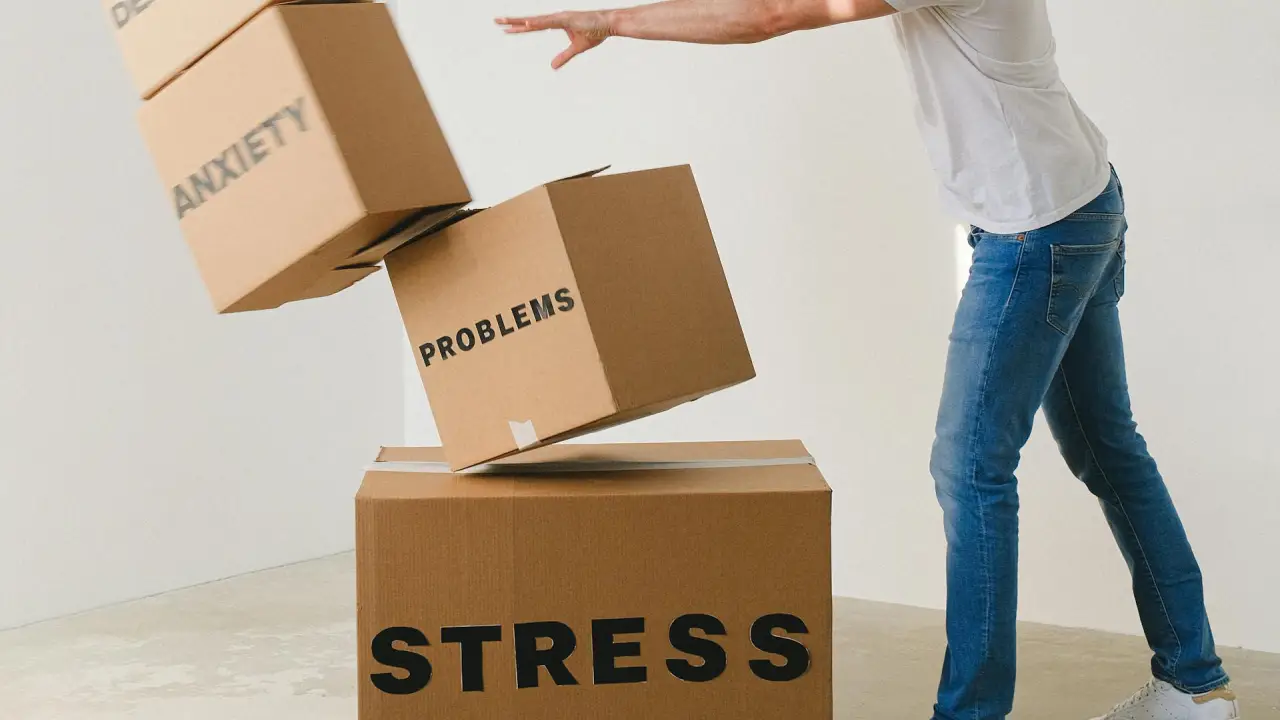Stress and anxiety are a common part of modern life, affecting people across different ages, professions, and lifestyles. Whether it’s work pressure, personal struggles, or everyday life challenges, these feelings can be overwhelming. However, it’s crucial to recognize that while we may not always have control over external circumstances, we do have control over how we respond to them. In this blog post, we will explore simple yet effective ways to manage and reduce stress and anxiety, providing you with practical tools to regain your peace of mind.
1. Breathe Deeply and Be Present
One of the easiest and most effective ways to combat stress is through deep breathing. When stress hits, your body reacts by increasing your heart rate and muscle tension, which can lead to feelings of anxiety. By practicing deep breathing, you can activate the body’s relaxation response.
Imagine you’re stuck in traffic, late for an important meeting. Your mind races, heart pounds, and stress takes over. A few minutes of deep breathing—inhale for four seconds, hold for four, exhale for four—can calm your body and help you think more clearly.
Practicing mindfulness can also help in reducing stress. Mindfulness means focusing entirely on the present moment without judgment. Instead of worrying about the future or ruminating on the past, mindfulness helps you stay grounded in what is happening right now. Apps like Headspace and Calm offer guided meditation to get you started on this journey.
2. Exercise Regularly: Move Your Body, Move Your Mind
Exercise is a well-known stress reliever and has a proven track record of boosting mood and reducing anxiety. When you exercise, your body releases endorphins—those feel-good chemicals that naturally reduce stress.
You don’t need to train for a marathon to feel the benefits. A simple walk in the park, dancing in your living room, or a yoga session can have a powerful effect on your mental well-being. The key is consistency.
A friend of mine, dealing with the stress of a demanding job, took up morning jogging as a way to clear her mind. What started as a 10-minute jog grew into a 30-minute run, and now she swears by this simple routine as her daily stress buster. She says it’s the only time she feels fully present and free of worries.
3. Prioritize Sleep: Rest to Restore
Poor sleep habits can significantly contribute to stress and anxiety. When you’re tired, even minor issues can seem monumental, making it harder to cope with everyday challenges. Establishing a healthy sleep routine is vital for both your physical and mental health.
Ensure that your bedroom is a peaceful environment—comfortable bedding, low lighting, and a cool temperature can make all the difference. Avoid screens an hour before bed, as the blue light emitted by phones and laptops can interfere with melatonin production, the hormone that regulates sleep.
Tip: If falling asleep is a struggle, try writing down any thoughts that are bothering you before bed. This simple act of “brain dumping” can help ease your mind and prepare your body for rest.
4. Create a Balanced Routine
Sometimes stress arises because we feel like we’re juggling too many things. Whether it’s work, family obligations, or social commitments, trying to do it all can quickly become overwhelming. Learning how to manage your time and prioritize tasks can make a significant difference in reducing stress.
Break down big tasks into smaller, manageable steps. This way, you won’t feel burdened by a massive workload all at once. Additionally, don’t hesitate to say “no” when you’re feeling stretched thin. It’s essential to recognize your limits and protect your mental health.
I once worked with someone who would never decline additional tasks at work, no matter how much was already on his plate. Eventually, he burned out, leading to extreme stress and poor performance. After learning to set boundaries and prioritize tasks, his stress levels dropped, and his productivity improved.
5. Connect with Others: Talk It Out
Human beings are social creatures, and isolation can worsen feelings of stress and anxiety. Connecting with friends, family, or even a therapist can help you gain perspective and offer much-needed support.
Sometimes, just talking about what’s bothering you with someone who listens without judgment can make a world of difference. Whether it’s a casual chat over coffee or a heart-to-heart with a close friend, social connections act as a buffer against stress.
6. Practice Gratitude Daily
Gratitude is a powerful antidote to stress and anxiety. By focusing on what you have, instead of what you lack, you shift your mindset toward positivity. Gratitude doesn’t mean ignoring challenges; it’s about acknowledging the good amidst the struggles.
Start a gratitude journal where you jot down three things you’re grateful for each day. These can be small, everyday moments—a kind gesture from a stranger, a beautiful sunset, or even just a peaceful moment alone.
A colleague once shared how a daily gratitude practice helped her manage work-related stress. Every morning, she would spend five minutes listing things she was thankful for, which shifted her mindset and set a positive tone for the day.
7. Limit Caffeine and Sugar Intake
What you eat and drink can have a significant impact on your stress levels. Caffeine, while a favorite pick-me-up, can sometimes trigger anxiety or make existing stress worse. Similarly, consuming too much sugar can lead to energy crashes, leaving you feeling sluggish and irritable.
Opt for healthier choices like herbal teas, fruits, and nuts. These foods provide sustained energy without causing mood swings or contributing to stress.
8. Take Breaks and Practice Self-Care
Sometimes the best way to reduce stress is by stepping away. Taking regular breaks throughout the day is essential, especially during demanding tasks. A few minutes of stepping outside or stretching your legs can rejuvenate your mind and help you return to the task with renewed focus.
Self-care also plays a critical role in managing stress. Whether it’s taking a warm bath, reading a book, or pursuing a hobby, engaging in activities that bring joy can alleviate stress and boost your overall mood.
9. Laugh More: Find Joy in Small Moments
Laughter truly is one of the best medicines. It reduces stress hormones, boosts mood, and brings a sense of relaxation. Don’t hesitate to take a break to watch a funny video, read a comic, or spend time with someone who makes you laugh.
I know someone who, during a particularly stressful work week, would take five-minute breaks to watch funny animal videos. It sounds silly, but those moments of laughter helped her reset and face the rest of the day with a lighter attitude.
Take Action and Reclaim Your Calm
Stress and anxiety are inevitable, but that doesn’t mean they have to control your life. By incorporating these simple strategies into your daily routine, you can regain a sense of calm and tackle life’s challenges with a clearer mind. From deep breathing to connecting with others, there are many ways to reduce stress and anxiety. The key is consistency and finding what works best for you.
What stress-relief techniques work for you? Share your thoughts or experiences in the comments below! Your tips might help someone else manage their stress better.





